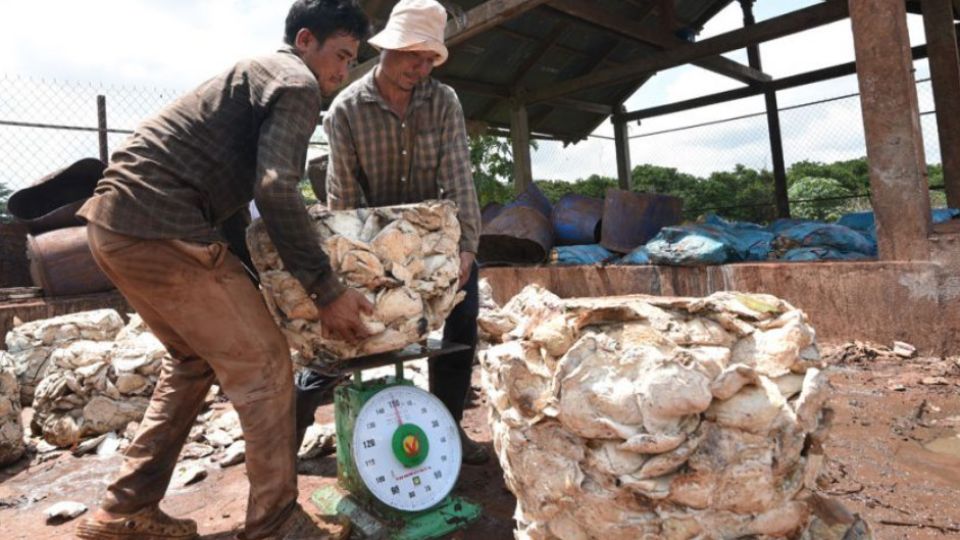January 28, 2022
PHNOM PENH – Cambodian rubber exports topped $611,770,814 in 2021, climbing up from $482 million a year earlier.
Broken down by category, 366,300 tonnes of natural rubber latex accounted for $610,255,800, and 454 cubic metres of rubber wood clocked in at $1,515,015, according to the General Department of Rubber.
Department head Him Aun told The Post that the increase was due to demand booming over the supply, an uptick in rubber trees that are tapped for latex, and to a lesser degree, rising crude oil prices, and improved Sino-US trade and economic cooperation.
He added that the average per-tonne selling price of latex in 2021 was $1,666 per tonne, rising by $284 or 21 per cent over a year earlier.
“The prices that farmers get when traders go down to buy on plantations – in other words, natural latex not including tax and transportation fees – are in the ballpark of $1,200-1,250 per tonne, which also depends on each area,” Aun said.
Chea Sakhin, a rubber farmer in Tbong Khmum province’s Memot district, said the average retail price for natural rubber latex last year was about 2,800 riel ($0.69) per kilogramme, compared to 2,500 riel in 2020.
Although growers are generally content with the profits they make, natural disasters such as windstorms pose headaches for those in Memot.
“Large rubber trees get blown to the ground by the wind, but farmers continue to replant them, motivated by the decent rates that rubber fetches,” Sakhin said.
Sao Sorn, a grower and trader of rubber tree seedlings in Tbong Khmum’s Ponhea Kraek district, said sales had increased significantly this month, due to high demand.
The uptrend in rubber prices has encouraged cultivation of the trees, he said, adding that he is currently growing “millions of rubber seedlings” on his fields.
“When demand for rubber seedlings is so high, they also sell at a high price. In 2020, they used to sell for more than 2,500 riel each, but now they go for 4,000 riel,” he said.
Aun said total rubber cultivation in Cambodia was 404,044ha as of 2021. Of these, 310,193ha or 76.77 per cent were mature trees that are tapped for latex, marking a six per cent rise over 2020.
He said he expects exports of natural rubber latex to maintain an average 400,000 tonne per annum pace for the foreseeable future, listing mainland China Vietnam, Singapore and Malaysia as major buyers.


